
by John Boston
So, there was a big civil rights march in Washington—quarter of a million people, the papers say. Lots of eloquent speeches and fine sentiments. It could make you think that the racial caste system that America was built on is finally starting to change. But I wonder. I work after school and on Saturdays at the local public library here in this small Kentucky town. Every now and then some of my fellow high school students drop in and spend some time at the magazine rack. One of the magazines they always look at is Ebony, which as you probably know is sort of a Life magazine for the Negro community: large-sized and glossy, with articles about famous or distinguished Negroes, social problems of interest, etc. It runs the same ads as Life and other slick magazines, but with Negro models.

These students leaf through Ebony looking at the ads, and snickering. Nothing is more hilarious to them than a Negro wearing a well cut suit, sipping an expensive whiskey, or behind the wheel of a prestigious car. These scoffers are not the local hoodlums; they are kids from respected families who make good grades and don’t get in trouble with the police—the Leaders of the Twenty-First Century, as they like to put it on the Mickey Mouse Club.
So marches in Washington are nice, and the proposed civil rights legislation will be great if it passes, but how much difference are they going to make along the back roads of Kentucky and similar places where attitudes like these prevail? I guess we’ll know in a few decades.

The October 1963 Amazing, on the other hand, is right here and we can pass judgment now. It’s a considerable improvement over last month’s, since there’s nothing in it that’s grossly stupid or offensive (Robert F. Young is nowhere in sight.) There’s nothing outstanding either, but at least some of this material falls short in more interesting ways than usual.
The lead story is Cordwainer Smith’s Drunkboat . Smith’s last seven stories—his production over the past three years—have all appeared in Galaxy, If, or Fantasy & Science Fiction, and this one’s appearance in Amazing strongly suggests that it was rejected by those higher-paying and at least slightly more prestigious outlets. It’s not hard to see why: it’s a mess. On the other hand, a Cordwainer Smith mess is more interesting than many other authors’ successes.
Sometimes with Smith, there is in the end a fairly straightforward story, but it’s told backwards or sideways, and swathed in stylistic antics and bizarre inventions, and the reader’s task is to appreciate them without becoming too distracted to figure out what the hell is going on. Here, the basic idea is one you hear every day on Top 40 radio, 30 or 40 times if you leave it on long enough: guy wants his baby back. Another guy, a Lord of the Instrumentality, has figured out a way to exploit this desire into a world(s)-changing discovery. To get there, you navigate a series of flash-backs and –forwards; an absurd if lively series of events at a hospital of the future, which offers some of the more bizarre medical techniques ever proposed; and a court of inquiry of the Lords of the Instrumentality, along with a rather alarming expository lump about how the Instrumentality actually operates. Much of this is told in a rather affected style that lies somewhere between saga and baby-talk. (First sentence: “Perhaps it is the saddest, maddest, wildest story in the whole long history of space.”)
The problem is the center doesn’t hold. The distractions overcome the story rather than seasoning it; it’s basically out of control. On the other hand, maybe that’s the point: the main character (the guy looking for his love) is called Artyr Rambo, seemingly named after a French poet who I gather was pretty far out of control himself. He was also fond of absinthe, which may have something to do with the story’s title (otherwise very poorly accounted for).
Anyway, three stars for the entertainment value of sorting it all out. A nod also goes to cover artist Lloyd Birmingham, who picks up on the story’s overtones of childishness with a cover that reflects a close reading of the story and is done in a style reminiscent of what children might do with scissors, construction paper, and glue, though of course much more complex and better executed.

The other novelet represents (be very afraid) the Return of the Classic Reprints, in the form of The Prince of Liars by one L. Taylor Hansen, from the October 1930 Amazing. The L is allegedly for Louise, though Sam Moskowitz says in his introduction that it’s not clear whether Louise actually wrote the several stories under this byline or whether she was fronting for her brother. This question might be more interesting if the story were. It starts out with a disquisition on relativity, then turns into a drawing-room frame story in which the narrator recounts what he was told by a mysterious character whose rooms are full of old books and artifacts.
The story proper starts out with more about relativity, then segues into one about a young Greek man, kidnapped by pirates, who escapes and takes refuge in a temple, where he encounters an extraordinarily beautiful woman, who isn’t what she seems, and soon enough he’s on an alien spaceship, and relativity comes back into play, etc. etc. It’s quite well written and is more the stuff of 1900-vintage scientific romance than of 1930s magazine SF, halfway between Wells and Edgar Rice Burroughs I suppose, but lacking the intellectual incisiveness that keeps Wells interesting even at this late date. Three stars for literacy and readability, but pretty dated.

Philip K. Dick is here with his first short SF in almost four years, Stand-By . He’s been busy in the interim with his Hugo-winning novel The Man in the High Castle and with All We Marsmen, now being serialized in Worlds of Tomorrow. He's also, rumor has it, made a few unsuccessful attempts at contemporary novels. Stand-By starts with a brilliant small notion: the news clown (can’t you just see it down the road?) but then mostly throws it away. Instead, we are shown a world in which the American Presidency is occupied by a computer, with a stand-by President in case Unicephalon goes out of commission.
Stand-by dies, and his place is taken by lazy schlumpf Max Fischer, because he’s next on the union seniority list. Then Unicephalon goes on the blink, so it’s Max into the breach just as an extraterrestrial invasion fleet breezes into the Solar System. Unqualified President Max learns to enjoy power and its abuses in ways that I am sure could never happen here. News clown Jim Briskin becomes his completely serious antagonist, and upon Unicephalon’s resuscitation, Max is out and the alien invasion fades into the background. This reads more like a rambling stand-up routine than a story, but nonetheless it’s clever, amusing, and readable enough. Three stars, and a hope that Dick regains the form of some of his older and more penetrating stories like Autofac and The Father-Thing.

Roger Zelazny is back with The Misfit , a minor item on a familiar theme that might seem better if we didn’t know he’s capable of more. Protagonist is trapped in an artificial reality; he wants out to the real one; how will he know if he’s found it? Zelazny has the good sense to keep it very short. Three stars for insubstantiality well turned.

Larry Eisenberg contributes his second SF story, The Fastest Draw, which is clever but contrived and a bit turgid. An electronics genius is hired to perfect a simulated old-West gunfighter game for an eccentric millionaire and succeeds too well. For something this trivial, Eisenberg should take lessons in brevity from Zelazny—then maybe he’d rate more than two stars.

Sam Moskowitz has another SF Profile, this one of Edmond Hamilton, which is well below his usual standard both in substance and execution. It ignores major stretches of Hamilton’s career (all of the 1950s, and most of the 1940s, and his entire engagement with comic books) and is also execrably written, even for klunkmeister Moskowitz. Consider this sentence: “Romance and marriage was approached via many delays and detours.” Two stars, Sam, and you’re getting off easy. Don’t come back until you take some remedial English!

So, once more, this magazine seems to be looking up. But . . . from the Coming Next Month squib: “From the long-locked safe of Edgar Rice Burroughs comes a never-before-published manuscript” in which the protagonists “sail the fiery seas of Molop Az in the search for Hodon the Fleet One and Dian the Beautiful”! I’m scheduling my lobotomy now.

![[September 13, 1963] COMING UP FOR AIR (the October 1963 <i>Amazing</i>)](https://galacticjourney.org/wp-content/uploads/2018/09/630913cover-672x372.jpg)

![[September 9, 1963] Great Expectations (October 1963 <i>Galaxy</i>)](https://galacticjourney.org/wp-content/uploads/2018/09/630909cover-444x372.jpg)










![[Sep. 1, 1963] How to Fail at Writing by not Really Trying (September 1963 <i>Analog</i>)](https://galacticjourney.org/wp-content/uploads/2018/09/630831cover-672x372.jpg)









![[August 27, 1963] Ups and Downs #2 <i>New Worlds, September 1963</i>](https://galacticjourney.org/wp-content/uploads/2018/08/630827cover-409x372.jpg)

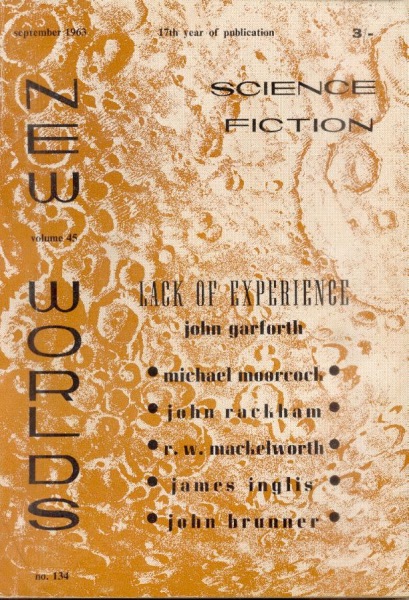
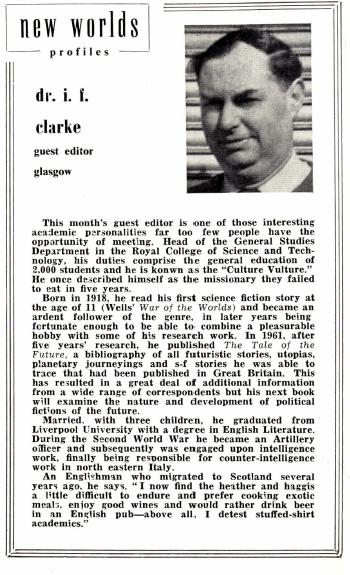
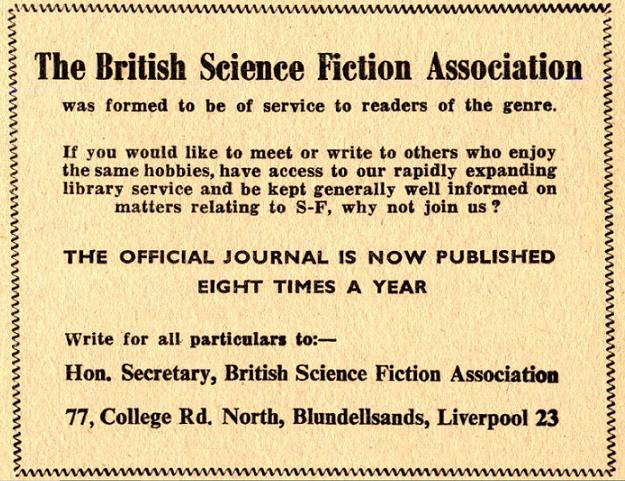
![[August 25, 1963] Hope Springs Eternal (September 1963 <i>Fantastic</i>)](https://galacticjourney.org/wp-content/uploads/2018/08/630825cover-672x372.jpg)




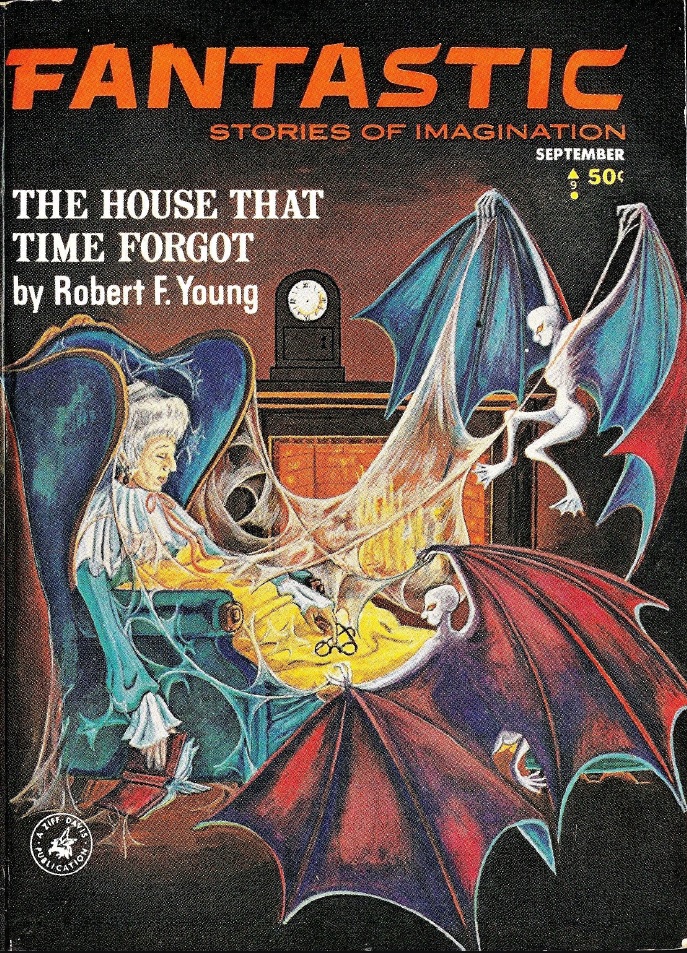

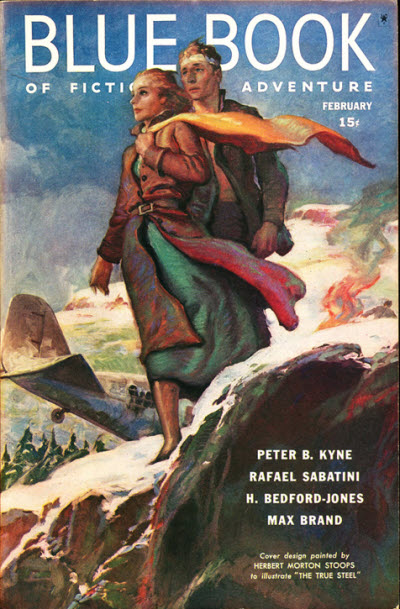
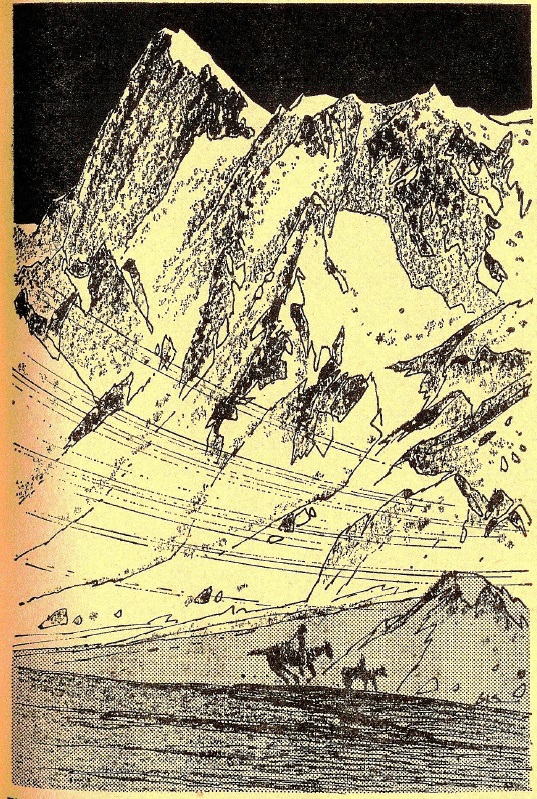
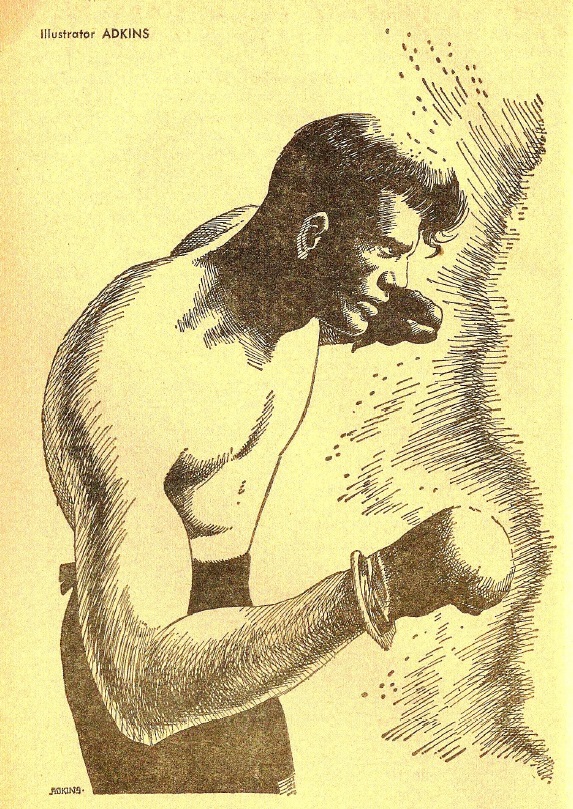
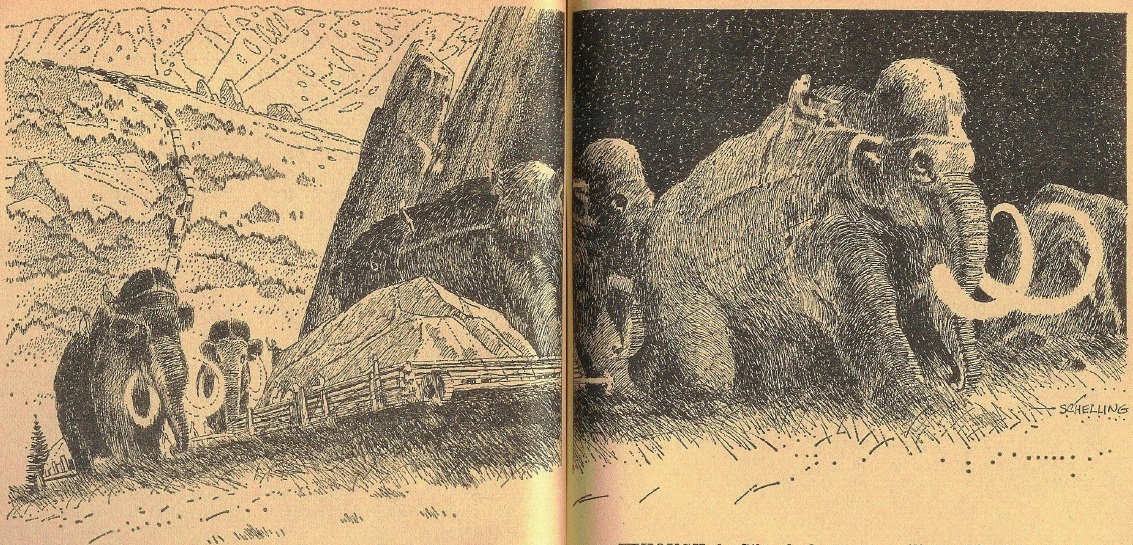
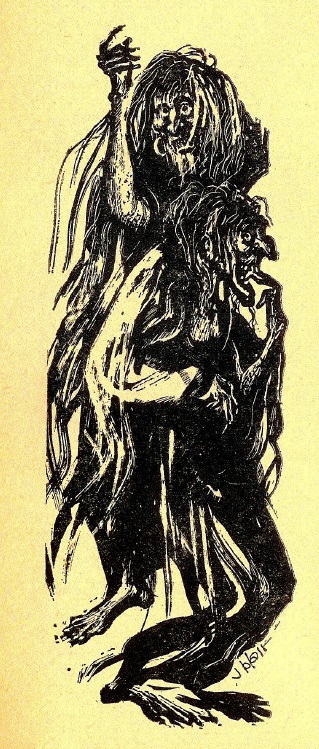
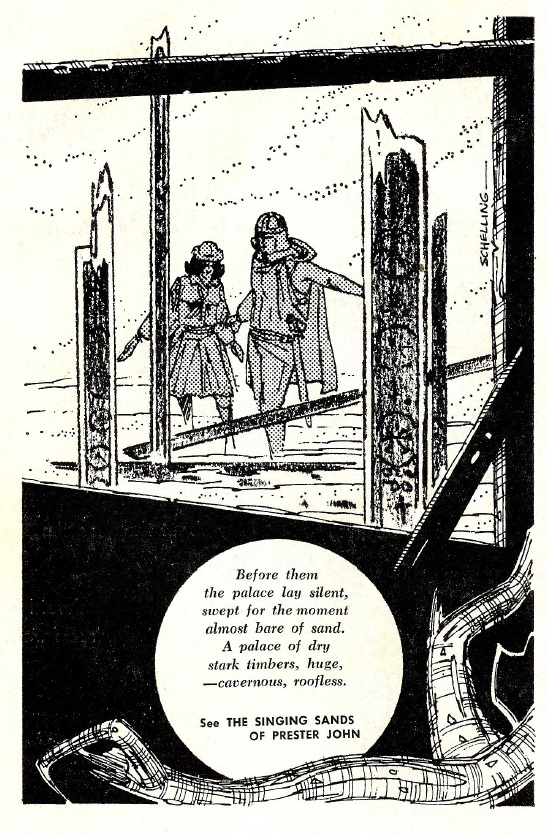
![[August 21, 1963] Forgettable (September 1963 <i>Fantasy and Science Fiction</i>)](https://galacticjourney.org/wp-content/uploads/2018/08/630818cover-672x372.jpg)



![[August 16, 1963] Time and Time Again (October 1963 <i>Worlds of Tomorrow</i>)](https://galacticjourney.org/wp-content/uploads/2018/12/630816WRLDSOCT1963-461x372.jpg)





























